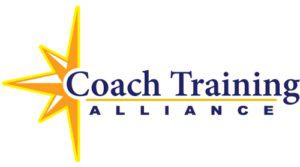As the demand for health and wellness services continues to grow, becoming a certified wellness coach is an increasingly popular career path for those passionate about helping others live healthier, more fulfilling lives. A wellness coach certification equips you with the skills, knowledge, and credibility needed to guide clients on their journey to improved physical, emotional, and mental well-being.
In this guide, we’ll explore what a wellness coach certification entails, the benefits of becoming certified, and how to get started on your path to a meaningful and impactful career.
What Is a Wellness Coach Certification?
A wellness coach certification is a credential that demonstrates you’ve completed formal training in health and wellness coaching and have met industry standards for practice. Certification programs cover a variety of topics, including nutrition, fitness, stress management, behavior change, and client communication. These programs prepare you to support clients in setting goals, overcoming challenges, and making sustainable lifestyle changes.
Earning a certification enhances your credibility as a wellness coach and ensures you are well-equipped to provide evidence-based guidance. Whether you’re launching a new career or expanding your skill set as a fitness trainer, nutritionist, or healthcare professional, a wellness coach certification provides the foundation you need to excel in the field.
Why Pursue Wellness Coach Certification?
Becoming a certified wellness coach offers a range of personal and professional benefits, including:
Enhanced Credibility and Marketability
Certification signals to potential clients and employers that you have the training and expertise needed to provide effective wellness coaching. It sets you apart from uncertified coaches and positions you as a credible professional in the industry.
Comprehensive Knowledge and Skills
A wellness coach certification program provides a well-rounded education in health, wellness, and coaching techniques. You’ll learn how to assess clients’ needs, create personalized wellness plans, and use coaching strategies to help clients stay motivated and committed to their goals.
Expanded Career Opportunities
Wellness coaching is a versatile field with opportunities in various settings, including private practice, corporate wellness programs, healthcare facilities, fitness centers, and educational institutions. Certification broadens your career prospects and allows you to work with a diverse range of clients.
Personal Growth and Fulfillment
Helping others achieve their wellness goals is a deeply rewarding experience. Certification programs often focus on personal development as well, encouraging you to reflect on your own wellness journey and align your values with your coaching practice.
Increased Earning Potential
Certified wellness coaches often command higher rates than uncertified coaches due to their demonstrated expertise. Employers are also more likely to hire certified professionals, making certification a worthwhile investment in your future earning potential.
Key Components of a Wellness Coach Certification Program
Wellness coach certification programs typically cover several core areas that prepare you to guide clients effectively. These include:
Foundations of Wellness
Understanding the principles of wellness is essential for any coach. Certification programs provide a comprehensive overview of wellness dimensions, including physical, emotional, mental, and social well-being. You’ll learn how to take a holistic approach to wellness that addresses all aspects of a client’s life.
Behavior Change Strategies
One of the most important roles of a wellness coach is to help clients make lasting changes to their habits and behaviors. Certification programs teach evidence-based strategies for behavior change, such as goal setting, habit formation, and motivational interviewing. These techniques empower clients to take ownership of their wellness journey.
Nutrition and Fitness Basics
While wellness coaches are not dietitians or personal trainers, they often provide general guidance on nutrition and exercise. Certification programs cover basic concepts in these areas, giving you the knowledge to help clients adopt healthier eating habits and stay active. For more complex needs, you’ll learn when to refer clients to specialized professionals.
Stress Management and Mindfulness
Stress is a major barrier to wellness for many people. Certification programs teach techniques for stress management, relaxation, and mindfulness, enabling you to help clients reduce stress and improve their mental well-being.
Coaching Ethics and Professionalism
Ethical practice is a cornerstone of wellness coaching. Certification programs cover topics like confidentiality, boundaries, and cultural sensitivity, ensuring you provide a safe and respectful environment for your clients.
How to Choose the Right Wellness Coach Certification Program
With so many certification programs available, it’s important to choose one that aligns with your goals and values. Consider the following factors when selecting a program:
Accreditation and Credibility
Look for programs accredited by reputable organizations, such as the National Board for Health and Wellness Coaching (NBHWC) or the International Coach Federation (ICF). Accreditation ensures that the program meets high standards for training and education.
Curriculum and Focus Areas
Review the program’s curriculum to ensure it covers the topics and skills most relevant to your interests. For example, if you’re passionate about nutrition, look for a program that includes comprehensive training in dietary wellness.
Format and Flexibility
Many programs offer online, in-person, or hybrid formats. Choose a format that fits your schedule and learning style. Online programs often provide greater flexibility, making them a popular choice for busy professionals.
Practical Experience
Hands-on practice is essential for developing coaching skills. Look for programs that include supervised coaching sessions, case studies, or role-playing exercises to help you gain real-world experience.
Support and Resources
Consider programs that offer ongoing support, such as mentorship, networking opportunities, or access to a community of coaches. These resources can be invaluable as you build your coaching practice.
How to Get Certified as a Wellness Coach
Once you’ve chosen a program, follow these steps to earn your wellness coach certification:
Enroll in a Certification Program
Select a program that aligns with your goals and complete the enrollment process. Many programs offer payment plans or financial assistance to make certification more accessible.
Complete Coursework and Training
Work through the program’s curriculum, which may include online modules, live classes, or a combination of both. Take advantage of any hands-on practice opportunities to refine your coaching skills.
Pass the Certification Exam
Most programs require you to pass a final exam to earn your certification. The exam may include written, oral, or practical components to assess your knowledge and skills.
Launch Your Wellness Coaching Career
With your certification in hand, you’re ready to start your career as a wellness coach. Whether you choose to work independently or join an established organization, your certification will open doors to new opportunities and clients.
Building a Successful Wellness Coaching Business
Earning your wellness coach certification is just the beginning. To build a thriving coaching practice, focus on these key areas:
Develop Your Brand and Niche
Identify your unique strengths and interests, and use them to define your coaching niche. Whether you specialize in stress management, weight loss, or workplace wellness, having a clear focus will help you attract clients who resonate with your approach.
Create a Marketing Strategy
Use a mix of online and offline marketing techniques to promote your services. Build a professional website, share valuable content on social media, and network with other wellness professionals to grow your client base.
Foster Strong Client Relationships
Success in wellness coaching depends on your ability to build trust and rapport with your clients. Listen actively, provide personalized guidance, and celebrate their progress to create a positive coaching experience.
Continue Learning and Growing
The wellness field is constantly evolving, so stay updated on the latest research and trends. Attend workshops, read industry publications, and pursue advanced certifications to enhance your skills and stay competitive.
Start Your Journey Today
Pursuing a wellness coach certification is a transformative step toward a fulfilling career that makes a positive impact on others’ lives. If you’re ready to take the first step, explore programs that align with your goals and consider taking a helpful assessment like the one offered by Coach Training Alliance. With the right training and commitment, you can build a successful coaching practice that empowers clients to achieve their wellness goals and lead healthier, happier lives.

